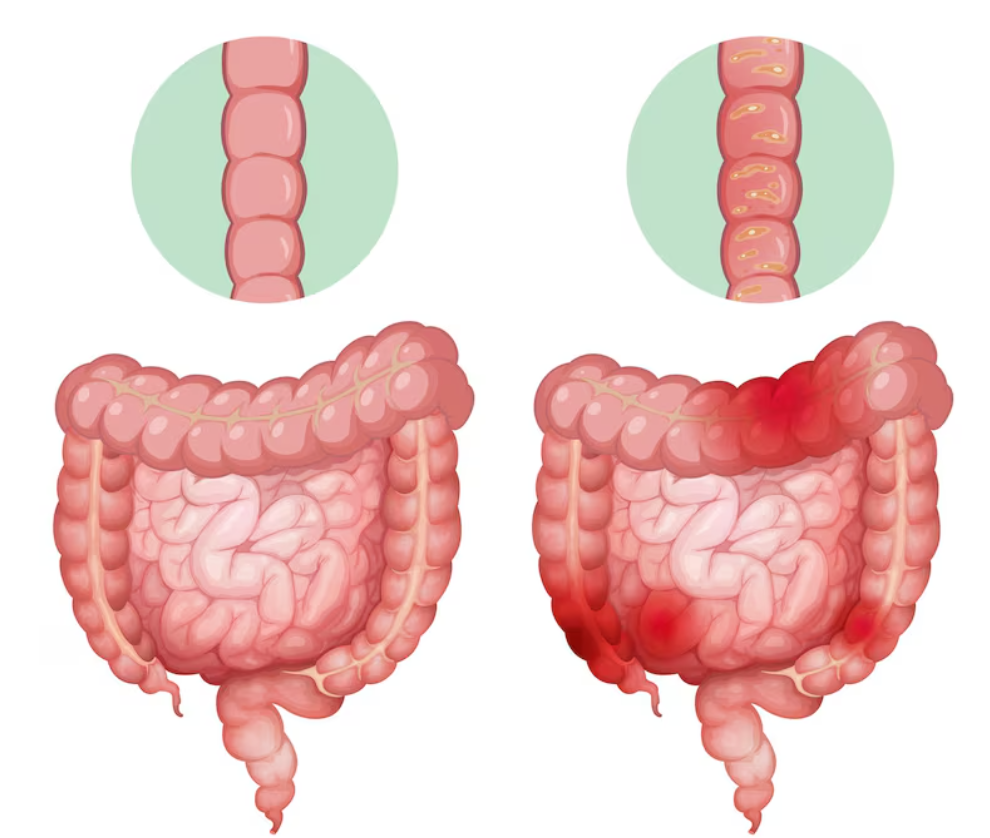“Simply Removing This One Food”… Could It Really Help Prevent Colon Cancer?
💡 Core Message: Protecting your colon starts with what you eat every day.
Surprisingly, the key to better health screening results may be hiding in your daily diet. What you choose to eat — or avoid — can directly affect your colon health and even contribute to colon cancer prevention. In this guide, you’ll discover simple yet powerful dietary habits that support a healthy colon and digestive system.

🎯 How Your Plate Affects Your Colon
The food you consume travels through your esophagus, stomach, small intestine, and finally — your colon. This last stop is where waste remains the longest, meaning that your dietary choices have a direct impact on the colon’s internal environment.
Fiber intake plays a critical role here. It bulks up stool, shortens transit time, and helps flush out harmful toxins or potential carcinogens before they can cause damage. Without enough fiber, these substances may linger in the colon too long, increasing the risk of inflammation or cancerous changes.
🌈 The Power of a “Five-Color Diet” for Colon Cancer Prevention
Nutrition experts emphasize the importance of eating a variety of colorful fruits and vegetables to improve colon health. Known as the “five-color diet,” it includes red (apples), yellow/orange (sweet potatoes, carrots), green (broccoli, cabbage), white (garlic, mushrooms), and purple (blueberries).
These plant-based foods are packed with fiber, antioxidants, and vitamins that nourish the gut lining and regulate digestion. According to Harvard Health Publishing, diets high in fiber significantly reduce the risk of colon cancer by promoting healthy bacterial balance and decreasing inflammation.
Dietary guidelines recommend consuming 25 to 30 grams of fiber daily. That’s approximately one cup of cooked vegetables, two cups of raw greens, and two medium-sized fruits.
Read the Full Harvard Article Here
❌ Why Fatty Foods and Processed Meats Are Dangerous
On the flip side, frequent consumption of high-fat meals and processed meats is strongly linked to increased colon cancer risk. Foods like bacon, sausages, instant noodles, and fast food often contain trans fats and excessive bile acids that irritate the colon’s lining and may lead to inflammation.
These substances can disturb the gut flora and prolong the exposure of the colon to toxins. For safer protein options, choose lean white meats such as chicken or fish, which are low in fat and rich in omega-3 fatty acids — beneficial for both the heart and the colon.
💪 Lifestyle Changes That Protect Your Colon
Diet alone isn’t enough — regular physical activity, quitting smoking, and limiting alcohol intake all contribute to colon cancer prevention. For individuals over age 50, it’s essential to schedule a colonoscopy every 2–3 years to detect and remove polyps before they become malignant.
According to the American Cancer Society, most colon cancers begin as benign polyps, which can be safely removed during a routine colonoscopy — making early screening a lifesaving practice.
Visit the American Cancer Society
📌 Final Takeaway: Colon Health is a Daily Choice
Colon health is shaped by our everyday choices — especially at the dinner table. Prioritize fiber-rich fruits and vegetables, reduce red and processed meats, and avoid high-fat fast food.
When combined with regular screenings and healthy lifestyle habits, these dietary changes can dramatically lower your risk of colon cancer. Start small, eat colorful, and protect your gut for the long run.
📚 Reference Links
- Harvard Health Publishing – Fiber and Colon Cancer
- American Cancer Society – Colon & Rectal Cancer



